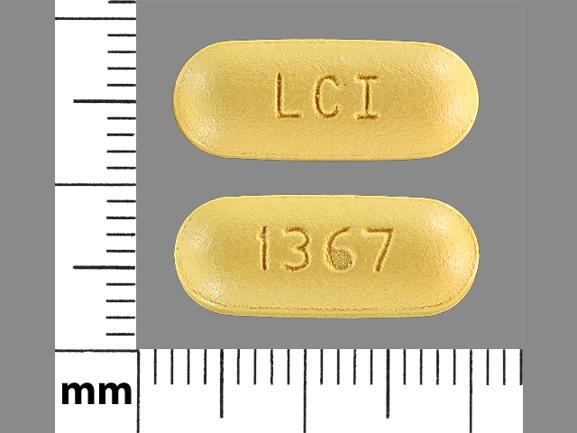Probenecid
Generic name: probenecid [ proe-BEN-a-sid ]
Brand name: Benemid
Dosage form: oral tablet (500 mg)
Drug class: Antigout agents
What is probenecid?
Probenecid is used to treat gout and gouty arthritis. probenecid reduces the amount of uric acid in your body by causing it to be passed in your urine.
Probenecid is also sometimes given together with penicillin antibiotics (including ampicillin, methicillin, oxacillin, cloxacillin, or nafcillin) to make them more effective.
Probenecid may also be used for purposes not listed in this medication guide.
Probenecid side effects
Get emergency medical help if you have signs of an allergic reaction: hives; difficulty breathing; swelling of your face, lips, tongue, or throat.
Probenecid may cause serious side effects. Call your doctor at once if you have:
-
worsening gout symptoms;
-
nausea, vomiting, stomach pain or swelling;
-
painful or difficult urination;
-
severe pain in your side or lower back;
-
blood in your urine;
-
urine that looks cloudy or foamy;
-
puffy eyes, swelling in your ankles or feet, weight gain; or
-
pale or yellowed skin.
Common side effects of probenecid may include:
-
headache, dizziness;
-
nausea, vomiting, loss of appetite;
-
flushing (sudden warmth, redness, or tingly feeling);
-
sore gums;
-
urinating more than usual;
-
itching, rash; or
-
hair loss.
This is not a complete list of side effects and others may occur. Call your doctor for medical advice about side effects. You may report side effects to FDA at 1-800-FDA-1088.
Warnings
You should not use probenecid if you have uric acid kidney stones, a gout attack that has already started, or a blood cell disorder.
Call your doctor if you have worsening gout symptoms.
Before taking this medicine
You should not use probenecid if you are allergic to it, or if you have:
-
uric acid kidney stones;
-
a gout attack that has already started; or
-
a blood cell disorder, such as anemia or low white blood cells.
Probenecid should not be given to a child younger than 2 years old.
Tell your doctor if you have ever had:
-
kidney disease;
-
a stomach ulcer; or
-
kidney stones.
Tell your doctor if you are pregnant or breast-feeding.
How should I take probenecid?
Follow all directions on your prescription label and read all medication guides or instruction sheets. Use the medicine exactly as directed.
Drink plenty of water to prevent kidney stones while you are taking probenecid.
You may be given other medications to also help prevent kidney stones. Keep using these medicines for as long as your doctor has prescribed.
If you need surgery, tell your surgeon you currently take probenecid. probenecid may affect your body's response to anesthesia.
Call your doctor if your gout symptoms do not improve, or if they get worse. Your doctor may prescribe an additional medicine called colchicine.
Store at room temperature away from moisture, heat, and light.
What happens if I miss a dose?
Take the medicine as soon as you can, but skip the missed dose if it is almost time for your next dose. Do not take two doses at one time.
What happens if I overdose?
Seek emergency medical attention or call the Poison Help line at 1-800-222-1222.
Overdose symptoms may include nausea, vomiting, or stomach discomfort.
What should I avoid while taking probenecid?
Ask a doctor or pharmacist if you feel you need to take a mild pain reliever. Avoid using any medicine that may contain aspirin or other salicylates (such as Disalsid, Doan's Extra Strength, Ecotrin, Novasal, Nuprin Backache, Salflex, Salsitab, Tricosal, Trilisate, and others).
What other drugs will affect probenecid?
Tell your doctor about all your other medicines, especially:
-
acetaminophen (Tylenol);
-
rifampin;
-
diabetes medicine you take by mouth;
-
a sulfa drug; or
-
an NSAID (nonsteroidal anti-inflammatory drug) such as indomethacin, ketoprofen, meclofenamate, or naproxen (Aleve).
This list is not complete. Other drugs may affect probenecid, including prescription and over-the-counter medicines, vitamins, and herbal products. Not all possible drug interactions are listed here.
More about probenecid
- Check interactions
- Compare alternatives
- Pricing & coupons
- Reviews (6)
- Drug images
- Side effects
- Dosage information
- During pregnancy
- Drug class: antigout agents
- Breastfeeding
- En español
Patient resources
Other brands
Professional resources
Related treatment guides
Further information
Remember, keep this and all other medicines out of the reach of children, never share your medicines with others, and use this medication only for the indication prescribed.
Always consult your healthcare provider to ensure the information displayed on this page applies to your personal circumstances.
Copyright 1996-2024 Cerner Multum, Inc. Version: 6.01.

